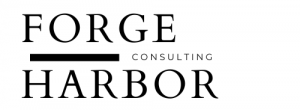Standardization Of Industry Expertise
When it comes to financial expert witness testimony, one of the biggest challenges facing lawyers and other legal professionals is the lack of standardization in financial expertise. Finding a Qualified and Unbiased Financial Expert can come from a variety of backgrounds and industries, and may have different levels of education and experience. This can make it difficult for lawyers to determine the qualifications and credentials of potential experts, and can also make it difficult for the court to rely on their testimony.
One of the main reasons for the lack of standardization in financial expertise is the wide range of financial products and services that are available. Financial experts may specialize in different areas, such as accounting, banking, securities, or insurance, and may have different levels of expertise within those areas. This can make it difficult for lawyers to find the right expert for their case, and can also make it difficult for the court to understand and evaluate the testimony of the expert.
Another reason for the lack of standardization is the lack of a clear and consistent set of qualifications or credentials for financial experts. While some experts may have advanced degrees or certifications, others may have only industry experience. This can make it difficult for lawyers to determine the qualifications and credentials of potential experts, and can also make it difficult for the court to evaluate the testimony of the expert.
To mitigate this problem, lawyers may consider outsourcing the hiring of a financial expert witness to a reputable firm that specializes in vetting and selecting experts. These firms typically have a process for thoroughly vetting and selecting experts, which can provide assurance to the lawyer that the expert is qualified. Additionally, an independent evaluation of the expert witness’s qualifications and credibility before the trial, by a neutral party, can provide the court with additional information and assurance that the expert is qualified and unbiased.
Overall, the lack of standardization in financial expertise can present a significant challenge for lawyers and other legal professionals when it comes to financial expert witness testimony. However, by using a reputable outsourcing firm or an independent evaluation, these challenges can be mitigated, and legal professionals can feel more confident in the information provided by the expert.
Challenge of potential bias among financial expert
Another challenge is the potential for bias among financial experts. Financial experts may have financial or other interests that could influence their testimony or analysis. This can make it difficult for lawyers to trust the information provided by the expert, and can also make it more difficult for the court to rely on their testimony.
Financial experts may have financial or other interests that could influence their testimony or analysis, which can make it difficult for lawyers to trust the information provided by the expert, and can also make it more difficult for the court to rely on their testimony.
The problem of bias among financial experts is particularly prevalent in cases involving large sums of money or high-profile companies. In such cases, experts may be inclined to present testimony or analysis that is favorable to the party that is paying them or with whom they have a relationship. This can lead to inaccurate or misleading testimony, which can harm the integrity of the legal process and the outcome of the case.
Another form of bias that can occur is when the expert has a personal bias towards the subject of the case, for example, when the expert has a personal relationship with a party in the case, or has a personal opinion on the matter that is being addressed in the case. This type of bias can lead to an expert witness providing testimony that is not completely objective, which can also harm the integrity of the legal process.
To mitigate the potential for bias among financial experts, lawyers and other legal professionals should take steps to thoroughly vet and select experts. This can include conducting extensive background checks, reviewing the expert’s qualifications, and interviewing the expert to determine their potential biases. Additionally, lawyers should consider hiring experts with a diverse range of experience and qualifications, to ensure that the expert’s testimony is well-rounded and unbiased.
Another way to mitigate the potential for bias is by using a reputable outsourcing firm that specializes in vetting and selecting experts. These firms typically have a process for thoroughly vetting and selecting experts, which can provide assurance to the lawyer that the expert is qualified and unbiased.
Additionally, an independent evaluation of the expert witness’s qualifications and credibility before the trial, by a neutral party, can provide the court with additional information and assurance that the expert is unbiased.
In conclusion, potential bias among financial experts is a significant challenge that lawyers and other legal professionals must address when hiring an expert witness. Lawyers should take steps to thoroughly vet and select experts, and consider using a reputable outsourcing firm to help mitigate the potential for bias. By taking these steps, lawyers can help ensure that the testimony provided by financial experts is accurate, unbiased, and reliable, which can help to ensure a fair and just outcome in legal proceedings.
Financial burden of engaging a financial expert witness
Additionally, the cost of engaging a financial expert can also present a challenge, as experts can be expensive and may require a large retainer and hourly rates. This can be a difficult expense for some parties involved, especially for those with limited financial resources.
One way to mitigate these challenges is by outsourcing the hiring of a financial expert witness to a reputable firm that specializes in vetting and selecting experts. These firms typically have a process for thoroughly vetting and selecting experts, which can provide assurance to the lawyer that the expert is qualified and unbiased.
Another way to mitigate these challenges is to have an independent evaluation of the expert witness’s qualifications and credibility before the trial, by a neutral party, this can provide the court with additional information and assurance that the expert is unbiased and qualified.
Overall, finding a qualified and unbiased financial expert can present a number of challenges for lawyers and other legal professionals. However, by using a reputable outsourcing firm or an independent evaluation, these challenges can be mitigated, and legal professionals can feel more confident in the information provided by the expert.










